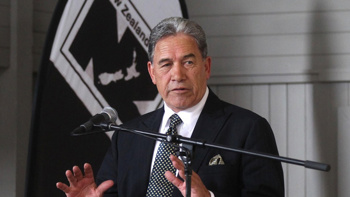Every Kiwi house and commercial property may need to be valued en masse by a computer programme under a capital gains tax, leading to warnings of a flood of objections from homeowners.
The mass valuation - already termed "V-Day" by pundits - could take place on April 1, 2021, the proposed date when the Government might bring the tax in.
While family homes would be exempt, most people would likely pay a CGT tax rate of 33 per cent on affected investment properties, farms and baches.
The tax would be charged on the gain in price a property sells for compared to its value at April 1, 2021.
With an estimated 1.88 million private dwellings in the country - not counting businesses - valuers CoreLogic have suggested the mass valuations be done by an automated process, similar to how councils value ratepayers' homes.
But Nigel Dean - a former Government valuer now with Colliers - said automated valuations were too inaccurate and he expected a flood of objections from property owners.
He pointed to how he helped a client object to a valuation by Auckland Council in which the council agreed to drop a commercial property's value from their original automated estimate of $5.8 million to $4m.
Dean said the $1.8m price difference showed government valuation models had been "utterly corrupted" over the years because few properties were inspected in person.
"This is no reliable basis upon which to base a tax which the working group says is 33 cents in the dollar ... it's hogwash," he said.
Dean told Mike Hosking the issue is everyone will want their valuation to be as high as possible with a capital gains tax.
"A lot of people were quite prepared to spend the money and complicate the valuation process and have it extended for a considerable period."
Dean warns that Jacinda Ardern investment property should not be targeted as it would negatively affect the housing market.
"Just remember when Rob Muldoon moved the decimal point on land tax from 0.2 per cent to 2.0 per cent. That caused a flood of objections, it caused complications and it certainly had an impact on property."
Dean's comments come as property owners across the country anxiously await more details about the tax - including whether the Government plans to introduce it or not.
In addition to concerns about how high the tax rate would be, many homeowners also worry whether the tax will bring in added accountancy and compliance costs.
But, while the Tax Working Group on Thursday recommended bringing the tax in by 2021, Finance Minister Grant Robertson earlier said the Government had not yet made any decisions.
It would instead seek technical advice before making announcements in April about what it would do and how any future measures, such as property valuations, might be implemented.
Matthew Gilligan, managing director of accountancy firm Gilligan, Rowe and Associates, said he thought it was fair to introduce a tax on property.
However, Gilligan — who owns more than 30 properties in Auckland, while his firm represents about 9000 clients — said a capital gains tax would be overly complicated and called for a simpler tax to be introduced.
Investors would not only be hit with costs in complying with the tax but would also "play games" by trying to inflate their 2021 property valuations as much as possible and thus minimise any tax on future rises in value, he said.
This would in turn put pressure on the Government's tax department to spend money policing the tax.
"We were joking before at seminars that a vote for Labour is a vote for Gilligan, Rowe because it is just a tax consultants' dream to bring in a CGT," Gilligan said.
However, CoreLogic head of research Nick Goodall said an automated mass valuation could be done at no cost to individual property owners, with the Government instead paying for the valuations.
When handling objections or wanting a reappraisal, the Government could also employ a similar system to that which banks already use, he said.
This would involve setting up a panel of independent valuers, who were then randomly assigned jobs inspecting the properties of those who objected to their original valuation.
This could maintain the independence of the valuations and prevent investors from cherry picking valuers, who might inflate their property valuations, Goodall said.
Take your Radio, Podcasts and Music with you









